ARCTIC
ENGINEERING
ENGINEERING
You are invited to take part
in our unique International School
in our unique International School
No participation fee is charged
International School

30 May - 03 June 2022 Online
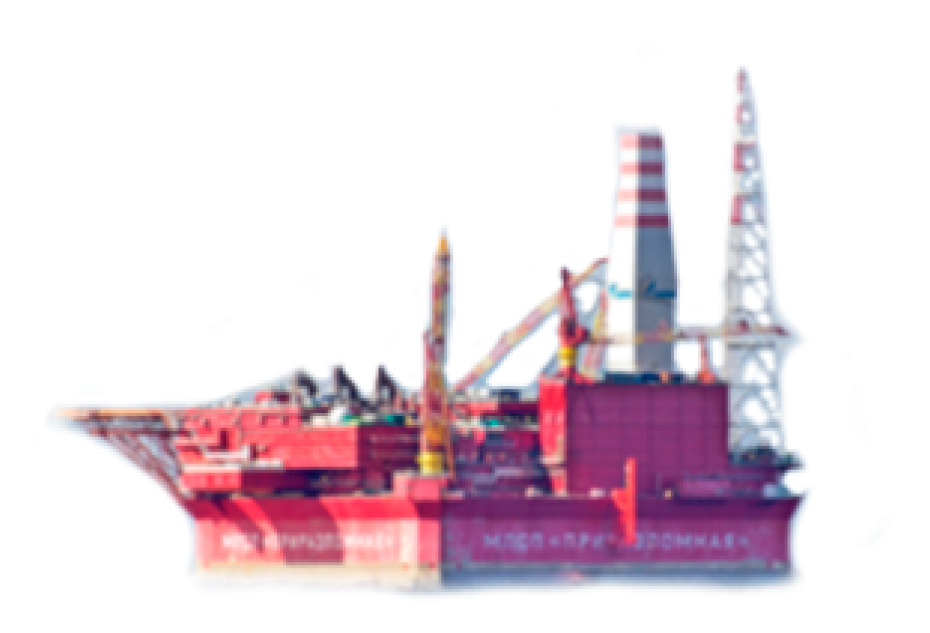







Participation
BA Students
BA students majoring in petroleum engineering, exploration of offshore fields, construction, and engineering of the Arctic




MA Students
MA students majoring in petroleum engineering, exploration of offshore fields, construction, and engineering of the Arctic




MA students majoring in petroleum engineering, exploration of offshore fields, construction, and engineering
of the Arctic
of the Arctic
BA students majoring in petroleum engineering, exploration of offshore fields, construction, and engineering
of the Arctic
of the Arctic
Online school
“Arctic Engineering”
“Arctic Engineering”
will gives you the following benefits
3 ECTS
total workload
total workload
Actual knowledge
Networking
3 ECTS points are summed up to indicate the total
workload for a school study, as well as a certificate
participation that will help you to achieve academic
and education success
workload for a school study, as well as a certificate
participation that will help you to achieve academic
and education success
At school you will receive the most of current interest
knowledge on study and development Arctic region.
And you will be in the trend of scientific discussion
of the development of the Arctic
knowledge on study and development Arctic region.
And you will be in the trend of scientific discussion
of the development of the Arctic
At school you will meet with students and researchers,
studying the Arctic. New acquaintances help you do
your scientific work better, as well as open new career
perspectives
studying the Arctic. New acquaintances help you do
your scientific work better, as well as open new career
perspectives
3 ECTS points are summed up to indicate
the total workload for a school study, as well
as a certificate participation that will help you
to achieve academic and education success
the total workload for a school study, as well
as a certificate participation that will help you
to achieve academic and education success
At school you will receive the most of current
interest knowledge on study and development
Arctic region. And you will be in the trend
of scientific discussion of the development
of the Arctic
interest knowledge on study and development
Arctic region. And you will be in the trend
of scientific discussion of the development
of the Arctic
At school you will meet with students
and researchers, studying the Arctic. New
acquaintances help you do your scientific work
better, as well as open new career perspectives
and researchers, studying the Arctic. New
acquaintances help you do your scientific work
better, as well as open new career perspectives
will gives you
the following benefits
the following benefits


“Arctic Engineering” explores the following
problems of study and exploration of the Arctic
problems of study and exploration of the Arctic
Energy industry
Energy consumption is increasing annually due to the increase
in the world's population and the energy intensity of production.
It is the main consumer of petroleum products and produces
the largest amount of greenhouse gases, in particular carbon
dioxide
This has a detrimental effect on the ecology of the planet.
Therefore, the use of new, unconventional hydrocarbon reserves,
such as gas hydrates and gas fields and alternative sources
of energy, which are concentrated in the Arctic region, is a priority
task in the new chapter in the development of world energy
industry
New energy projects require unique and innovative approaches
in modeling, design and development. The school will introduce
you to the latest developments in the field of energy industry
in the world's population and the energy intensity of production.
It is the main consumer of petroleum products and produces
the largest amount of greenhouse gases, in particular carbon
dioxide
This has a detrimental effect on the ecology of the planet.
Therefore, the use of new, unconventional hydrocarbon reserves,
such as gas hydrates and gas fields and alternative sources
of energy, which are concentrated in the Arctic region, is a priority
task in the new chapter in the development of world energy
industry
New energy projects require unique and innovative approaches
in modeling, design and development. The school will introduce
you to the latest developments in the field of energy industry
“Arctic Engineering” explores the following
problems of study and exploration
of the Arctic
problems of study and exploration
of the Arctic
“Arctic Engineering” explores
the following problems of study
and exploration of the Arctic
the following problems of study
and exploration of the Arctic
Energy consumption is increasing annually
due to the increase in the world's population and the energy intensity of production.
It is the main consumer of petroleum
products and produces the largest amount
of greenhouse gases, in particular carbon
dioxide
This has a detrimental effect on the ecology
of the planet. Therefore, the use of new, unconventional hydrocarbon reserves,
such as gas hydrates and gas fields
and alternative sources of energy, which
are concentrated in the Arctic region,
is a priority task in the new chapter
in the development of world energy
industry
New energy projects require unique
and innovative approaches in modeling, design and development. The school will introduce you to the latest developments
in the field of energy industry
due to the increase in the world's population and the energy intensity of production.
It is the main consumer of petroleum
products and produces the largest amount
of greenhouse gases, in particular carbon
dioxide
This has a detrimental effect on the ecology
of the planet. Therefore, the use of new, unconventional hydrocarbon reserves,
such as gas hydrates and gas fields
and alternative sources of energy, which
are concentrated in the Arctic region,
is a priority task in the new chapter
in the development of world energy
industry
New energy projects require unique
and innovative approaches in modeling, design and development. The school will introduce you to the latest developments
in the field of energy industry


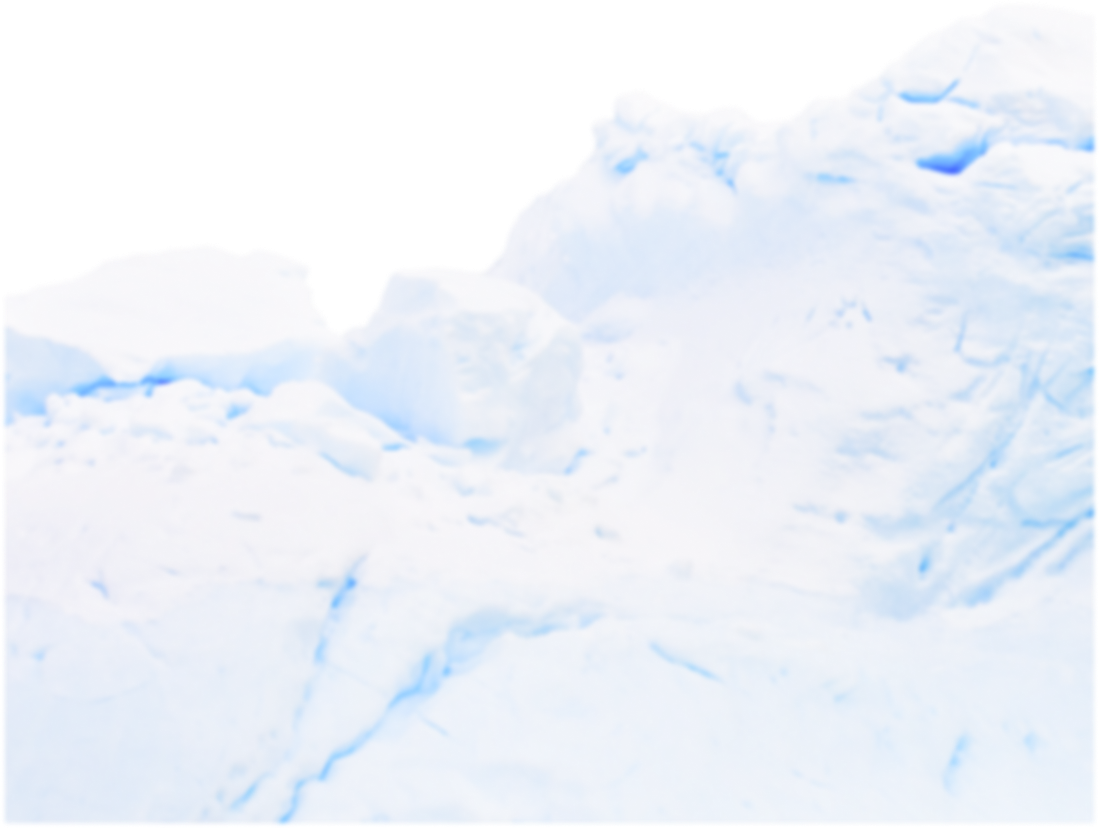


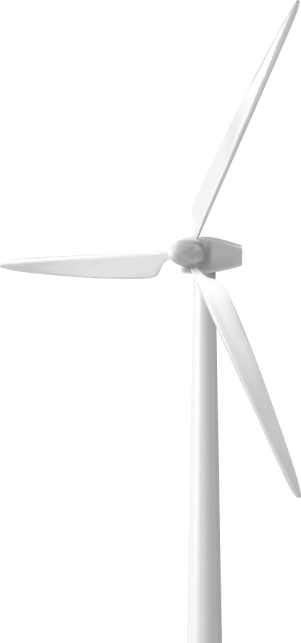
Construction
The Arctic regions are strategically important territories for Russia.
At present, major projects for the modernization and reconstruction
of the social, industrial, housing, transport, and other infrastructure
of the Arctic require new construction regulations that take into
account the extreme permafrost conditions.
The Arctic regions have a number of specific features that make
it difficult or impossible to develop and build infrastructure solely
using technologies that have previously been tested at existing
fields. Man made impacts are radically changing the thermal state
of rocks in the Arctic zone, which contributes to processes that
increase the risk of the deformation or destruction of buildings.
The remoteness from industrialized regions, the lack of developed
infrastructure and the inability to build it quickly as well
as unfavourable geo-climatic and challenging engineering
and geological conditions all create significant difficulties
for the development of Arctic regions.
Our aim is to find ways to minimize all kinds of burdens
on the environment, both during the construction and operation
of facilities. To achieve this goal, modern technical solutions
that optimize all aspects of interaction with the environment need
to be developed and applied, including the use of minimally
manned, energy-saving, and eco-friendly technologies.
At present, major projects for the modernization and reconstruction
of the social, industrial, housing, transport, and other infrastructure
of the Arctic require new construction regulations that take into
account the extreme permafrost conditions.
The Arctic regions have a number of specific features that make
it difficult or impossible to develop and build infrastructure solely
using technologies that have previously been tested at existing
fields. Man made impacts are radically changing the thermal state
of rocks in the Arctic zone, which contributes to processes that
increase the risk of the deformation or destruction of buildings.
The remoteness from industrialized regions, the lack of developed
infrastructure and the inability to build it quickly as well
as unfavourable geo-climatic and challenging engineering
and geological conditions all create significant difficulties
for the development of Arctic regions.
Our aim is to find ways to minimize all kinds of burdens
on the environment, both during the construction and operation
of facilities. To achieve this goal, modern technical solutions
that optimize all aspects of interaction with the environment need
to be developed and applied, including the use of minimally
manned, energy-saving, and eco-friendly technologies.
The Arctic regions are strategically important
territories for Russia. At present, major projects
for the modernization and reconstruction
of the social, industrial, housing, transport,
and other infrastructure of the Arctic require
new construction regulations that take into
account the extreme permafrost conditions.
The Arctic regions have a number of specific
features that make it difficult or impossible
to develop and build infrastructure solely
using technologies that have previously been
tested at existing fields. Man made impacts
are radically changing the thermal state
of rocks in the Arctic zone, which contributes
to processes that increase the risk
of the deformation or destruction of buildings.
The remoteness from industrialized regions,
the lack of developed infrastructure
and the inability to build it quickly as well
as unfavourable geo-climatic and challenging
engineering and geological conditions all
create significant difficulties
for the development of Arctic regions.
Our aim is to find ways to minimize all kinds
of burdens on the environment, both during
the construction and operation of facilities.
To achieve this goal, modern technical solutions that optimize all aspects
of interaction with the environment need to be developed and applied, including the use
of minimally manned, energy-saving, and
eco-friendly technologies.
territories for Russia. At present, major projects
for the modernization and reconstruction
of the social, industrial, housing, transport,
and other infrastructure of the Arctic require
new construction regulations that take into
account the extreme permafrost conditions.
The Arctic regions have a number of specific
features that make it difficult or impossible
to develop and build infrastructure solely
using technologies that have previously been
tested at existing fields. Man made impacts
are radically changing the thermal state
of rocks in the Arctic zone, which contributes
to processes that increase the risk
of the deformation or destruction of buildings.
The remoteness from industrialized regions,
the lack of developed infrastructure
and the inability to build it quickly as well
as unfavourable geo-climatic and challenging
engineering and geological conditions all
create significant difficulties
for the development of Arctic regions.
Our aim is to find ways to minimize all kinds
of burdens on the environment, both during
the construction and operation of facilities.
To achieve this goal, modern technical solutions that optimize all aspects
of interaction with the environment need to be developed and applied, including the use
of minimally manned, energy-saving, and
eco-friendly technologies.


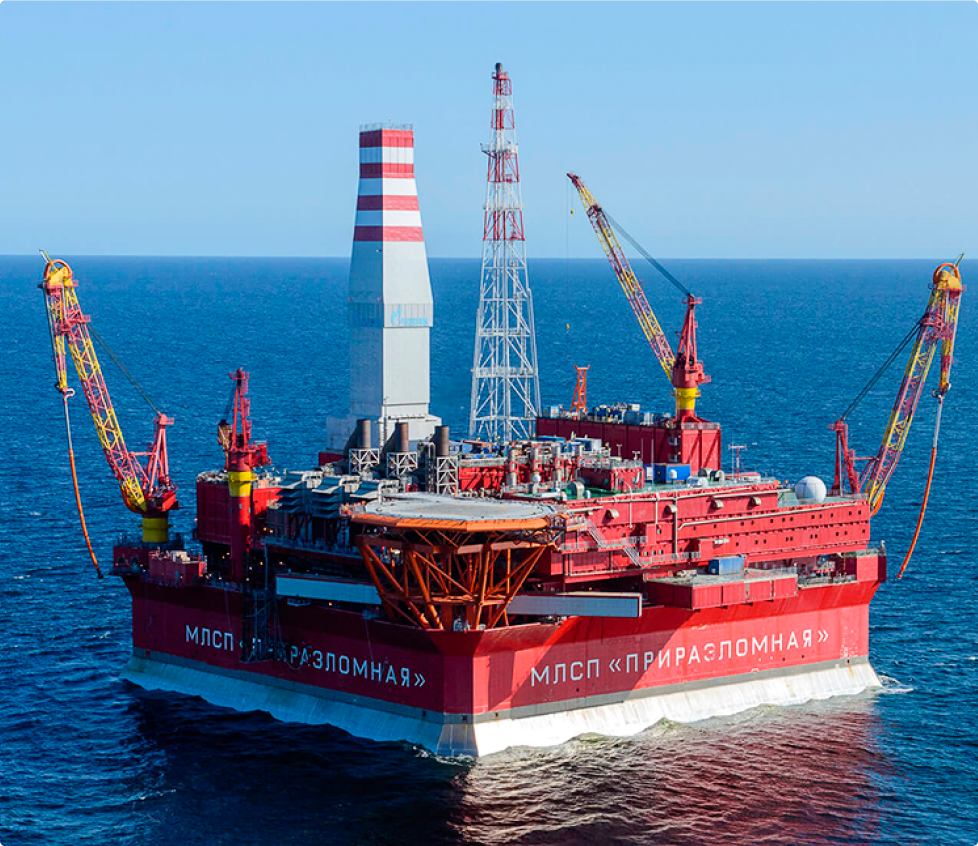
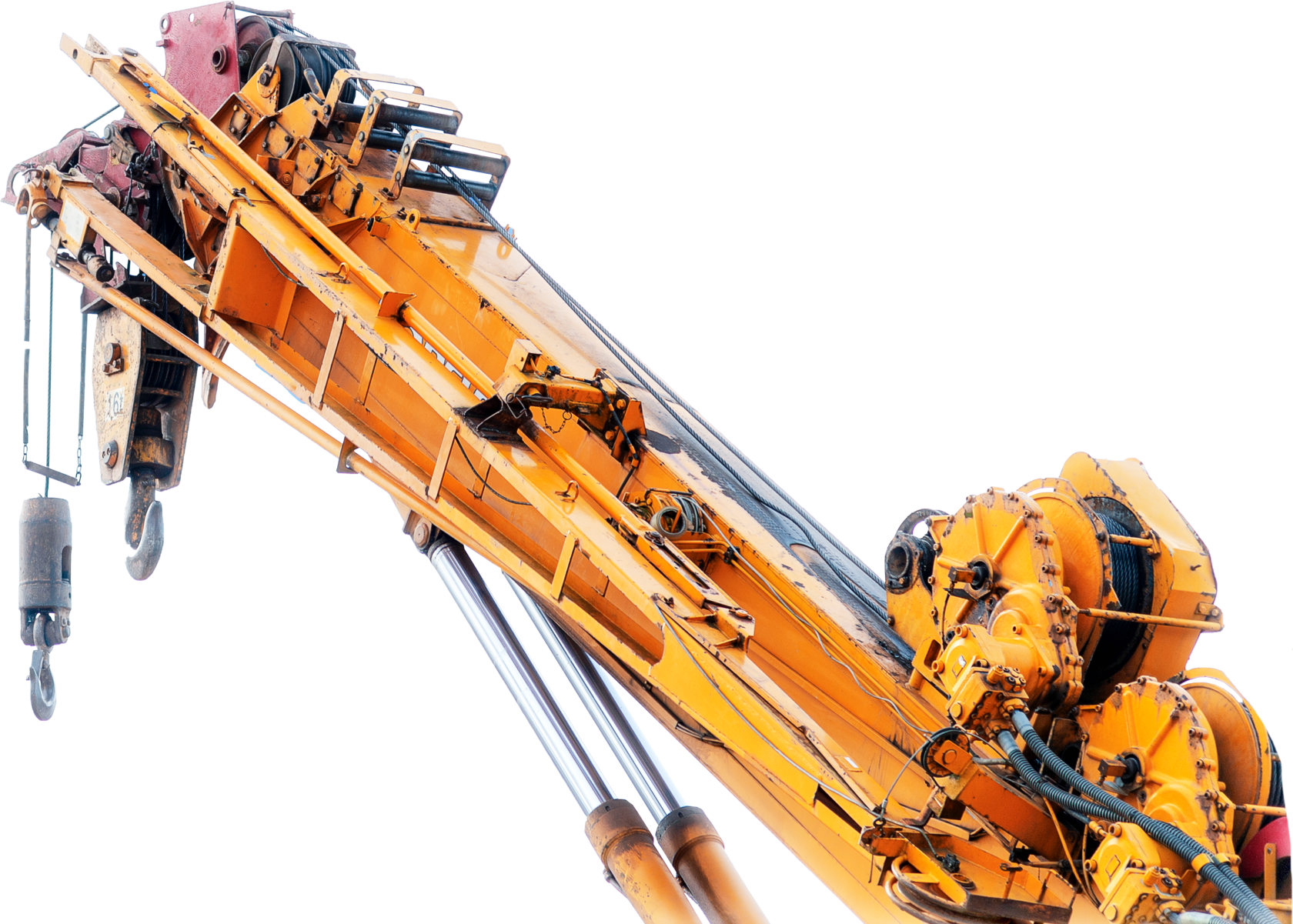

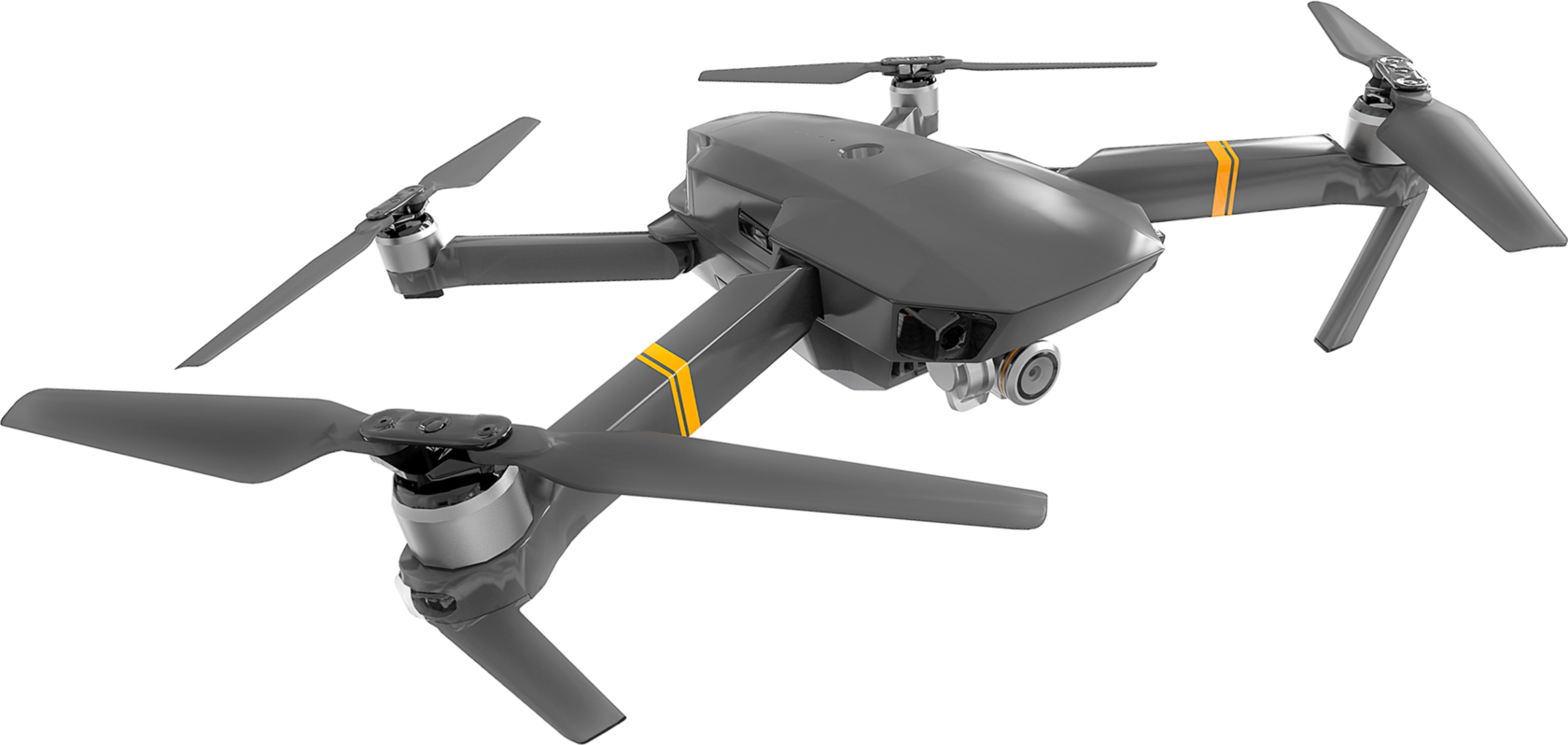
Environment
The arctic is a pristine environment that has been largely untouched
by economic development, and as a consequence, any impact from
industrial operation tends to be very noticeable.
The extreme nature of the climate also means that plants
and animals in the area are usually living on the edge
of the maximum carrying capacity of their habitat.
A small effect for example from construction processes may have
a large impact on these plants and animals. In non-arctic regions,
a typical mitigation measure during construction is to provide
alternative habitats by replacing or reinstating areas that were
damaged in the past.
In the arctic, this is not possible as there is no previously damaged
habitat nearby. An extensive and long-term baseline survey
of the local habitat is necessary in order to carefully document
pre-existing conditions and help establish what must be done
during the operational and reclamation phases.
by economic development, and as a consequence, any impact from
industrial operation tends to be very noticeable.
The extreme nature of the climate also means that plants
and animals in the area are usually living on the edge
of the maximum carrying capacity of their habitat.
A small effect for example from construction processes may have
a large impact on these plants and animals. In non-arctic regions,
a typical mitigation measure during construction is to provide
alternative habitats by replacing or reinstating areas that were
damaged in the past.
In the arctic, this is not possible as there is no previously damaged
habitat nearby. An extensive and long-term baseline survey
of the local habitat is necessary in order to carefully document
pre-existing conditions and help establish what must be done
during the operational and reclamation phases.
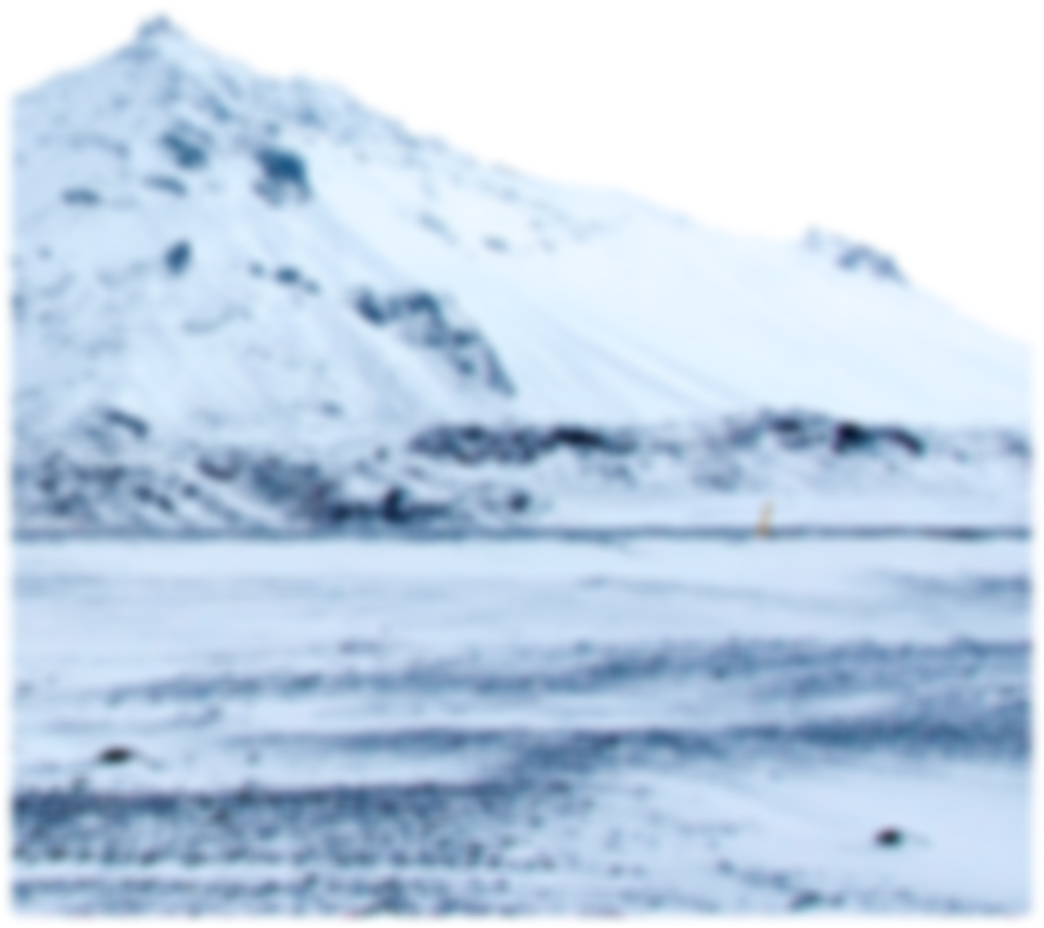



The arctic is a pristine environment that has been
largely untouched by economic development,
and as a consequence, any impact from
industrial operation tends to be very noticeable.
The extreme nature of the climate also means
that plants and animals in the area are usually
living on the edge of the maximum carrying
capacity of their habitat.
A small effect for example from construction
processes may have a large impact on these
plants and animals. In non-arctic regions,
a typical mitigation measure during construction
is to provide alternative habitats by replacing
or reinstating areas that were damaged
in the past.
In the arctic, this is not possible as there
is no previously damaged habitat nearby. An
extensive and long-term baseline survey
of the local habitat is necessary in order
to carefully document pre-existing conditions
and help establish what must be done during
the operational and reclamation phases.
largely untouched by economic development,
and as a consequence, any impact from
industrial operation tends to be very noticeable.
The extreme nature of the climate also means
that plants and animals in the area are usually
living on the edge of the maximum carrying
capacity of their habitat.
A small effect for example from construction
processes may have a large impact on these
plants and animals. In non-arctic regions,
a typical mitigation measure during construction
is to provide alternative habitats by replacing
or reinstating areas that were damaged
in the past.
In the arctic, this is not possible as there
is no previously damaged habitat nearby. An
extensive and long-term baseline survey
of the local habitat is necessary in order
to carefully document pre-existing conditions
and help establish what must be done during
the operational and reclamation phases.
Take participation
in the online school
in the online school



Our speakers
Prof. Dr Jonjaua Ranogajec
Professor at the Department
of Materials Engineering
of Materials Engineering
4 countries
10 world-famous professors
Uncountable experience
10 world-famous professors
Uncountable experience
University
of Novi Sad




Serbia
More details will be later.
Stay Tuned!
Stay Tuned!
Associate prof. of the Department of Composite Materials
and Environmental Engineering
and Environmental Engineering
Applied Mathematics, Environmental Chemistry,
Pyrolysis and Combustion modeling
Pyrolysis and Combustion modeling
Head of Institute of Industrial Technology, UiT, Arctic Technology & Icing Research Group
Professor, First Vice-Rector
for Strategy and Research,
Industrial and Environmental
Engineering, Bioengineering
for Strategy and Research,
Industrial and Environmental
Engineering, Bioengineering
Coastal dynamics, Physical
and numerical modeling of wave effects on the structures
and numerical modeling of wave effects on the structures
Deputy for International Cooperation NArFU named after M.V. Lomonosov Higher School
of Energy, Oil and Gas, lecturer
of Energy, Oil and Gas, lecturer
Applied Mathematics, Environmental Chemistry, Pyrolysis and Combustion modeling
France

Prof. Dr. Alain Brillard



Université
de Haute-Alsace
de Haute-Alsace
University
Norway




The Arctic
University of Norway
University of Norway
University
Department of Building, Energy
and Material Technology, UiT, Arctic Technology & Icing Research Group
and Material Technology, UiT, Arctic Technology & Icing Research Group
Prof. Dr.
Mohamad Mustafa
Mohamad Mustafa
Associate prof. of the Department
of Composite Materials
and Environmental Engineering
of Composite Materials
and Environmental Engineering
Russia




Northern (Arctic)
Federal University
Federal University
University
Dr./Ass. Prof.
Maria Frolova
Maria Frolova
Russia

Ivan
Belozerov
Belozerov



Northern (Arctic)
Federal University
Federal University
University
Engineer in Innovative Technological Center of Arctic Oil and Gas Labarotory Research
Norway

Prof. Dr. Muhammad Shakeel Virk



The Arctic
University of Norway
University of Norway
University
Head of Institute of Industrial Technology, UiT, Arctic Technology & Icing Research Group
Deputy for International Cooperation NArFU named after M.V. Lomonosov Higher School of Energy, Oil and Gas, lecturer
Russia

Ramil
Guliev
Guliev



Northern (Arctic)
Federal University
Federal University
University
Professor, First Vice-Rector for Strategy and Research, Industrial
and Environmental Engineering, Bioengineering
and Environmental Engineering, Bioengineering
Russia




Northern (Arctic)
Federal University
Federal University
University
Prof. Dr. Pavel Maryandyshev
Russia




National Research University Moscow State University of Civil Engineering
University
Prof. Dr Izmail
G. Kantarzhi
G. Kantarzhi
Coastal dynamics, Physical and numerical modeling of wave effects on the structures
Coastal dynamics, Physical
and numerical modeling of wave effects on the structures
and numerical modeling of wave effects on the structures
China




Harbin Institute
of Technology
of Technology
University
Professor of the School
of Environment, Director
of the UArctic-HIT Training Centre
of Environment, Director
of the UArctic-HIT Training Centre
Prof. Dr.
Yifan Li
Yifan Li
Germany




University of Applied Sciences Emden / Leer
University
Prof. Dr. Jens Hüppmeier
Professor, Chemical Engineering, Control Systems Engineering, Membranes
Online school partners
gather knowledge and experience from partner universities
School’s Program


10:30 – 11:00
“NArFU - is a brand new ambitious university of distinctiveness
and innovations designed to meet the needs of the Arctic”
and innovations designed to meet the needs of the Arctic”
Prof. P. Maryandyshev
11:00 – 12:30
“Hydrocarbon Resources Development
and the Environment in the Arctic”
and the Environment in the Arctic”
Prof. A. Zolotukhin
10:00 – 10:30
Opening ceremony
12:30 – 13:00
Topic for the group work and further presentation
development — Case Championship
development — Case Championship
13:00 – 13:30
Virtual tour — Arkhangelsk city
13:30 – 14:00
Virtual tour — Malye Karely
“NArFU - is a brand new ambitious university
of distinctiveness and innovations designed
to meet the needs of the Arctic”
of distinctiveness and innovations designed
to meet the needs of the Arctic”
“NArFU - is a brand new ambitious university of distinctiveness
and innovations designed
to meet the needs of the Arctic”
and innovations designed
to meet the needs of the Arctic”
“NArFU - is a brand new ambitious
university of distinctiveness
and innovations designed
to meet the needs of the Arctic”
university of distinctiveness
and innovations designed
to meet the needs of the Arctic”
Topic for the group work and further
presentation development — Case Championship
presentation development — Case Championship
Topic for the group work and further
presentation development —
Case Championship
presentation development —
Case Championship
(UTC +3)
(UTC +3)
(UTC +3)
(UTC +3)
(UTC +3)
(UTC +3)
School’s Program


11:30 – 13:00
“Energy efficient materials in Cold Regions”
Prof. Mohamad Y. Mustafa
14:00 – 15:30
“Novel materials: self-cleaning methodology"
Prof. Dr Jonjaua Ranogajec
10:00 – 11:30
"Icing of constructions in the Arctic condition"
15:30 – 17:00
“Laboratory studies of rock samples and hydrocarbons
in the Arctic Oil and Gas Innovative Technological Center (AOG ITC)”
in the Arctic Oil and Gas Innovative Technological Center (AOG ITC)”
"Energy efficient materials in Cold Regions"
«Energy efficient
materials in Cold Regions»
materials in Cold Regions»
«Energy efficient
materials in Cold Regions»
materials in Cold Regions»
Topic for the group work and further
presentation development — Case Championship
presentation development — Case Championship
Topic for the group work and further
presentation development —
Case Championship
presentation development —
Case Championship
Prof. Muhammad Virk
Engineer of The AOG ITC Belozerov I.P
«Icing of constructions
in the Arctic condition»
in the Arctic condition»
«Novel materials:
self-cleaning methodology»
self-cleaning methodology»
(UTC +3)
(UTC +3)
(UTC +3)
(UTC +3)
School’s Program


11:30 – 13:00
“Alternative energy sources in the High North”
Prof. P. Maryandyshev
13:30 – 14:30
”Features of the design of seaports in the Arctic”
Prof. Dr Igor Kantarzhi
10:00 – 11:30
Introduction of NArFU
15:00 – 17:30
Group work
“Alternative energy sources in the High North”
“Alternative energy sources in the High North”
“Alternative energy
sources in the High North”
sources in the High North”
Group work
Group work
Introduction of NArFU
«Features of the design
of seaports in the Arctic»
of seaports in the Arctic»
“Alternative energy
sources in the High North”
sources in the High North”
«Features of the design
of seaports in the Arctic»
of seaports in the Arctic»
(UTC +3)
(UTC +3)
(UTC +3)
(UTC +3)
School’s Program


11:30 – 13:00
“Mathematical tools to estimate the energy potential in the Arctic"
Prof. Alain Brillard
13:30 – 14:30
“Ecologically green material in the Arctic conditions”
Maria Frolova
10:00 – 11:30
Introduction of NArFU
15:00 – 17:30
Group work
“Alternative energy sources in the High North”
“Alternative energy sources in the High North”
“Alternative energy
sources in the High North”
sources in the High North”
Group work
Group work
Introduction of NArFU
“Ecologically green material
in the Arctic conditions”
in the Arctic conditions”
“Alternative energy
sources in the High North”
sources in the High North”
“Ecologically green material
in the Arctic conditions”
in the Arctic conditions”
(UTC +3)
(UTC +3)
(UTC +3)
(UTC +3)
School’s Program


11:30 – 13:00
“Environmental Safety and Risk Assessment in the Arctic"
Prof. Yi-Fan Li
13:00 – 14:30
“Hydrocarbons Treatment”
Prof. Jens Hüppmeier
10:00 – 11:30
Admission in NArFU
15:00 – 17:30
Group work
“Environmental Safety
and Risk Assessment in the Arctic"
and Risk Assessment in the Arctic"
“Alternative energy sources in the High North”
“Environmental Safety
and Risk Assessment in the Arctic"
and Risk Assessment in the Arctic"
Group work
Group work
Introduction of NArFU
“Hydrocarbons Treatment”
“Environmental Safety
and Risk Assessment in the Arctic"
and Risk Assessment in the Arctic"
“Hydrocarbons Treatment”
(UTC +3)
(UTC +3)
(UTC +3)
(UTC +3)
School’s Program


14:00 – 16:00
Reward and closing ceremony
09:30 – 11:30
Workshop and project presentation of the group work of student
Reward and closing ceremony
“Alternative energy sources in the High North”
Reward and closing ceremony
Introduction of NArFU
Reward and closing ceremony
(UTC +3)
(UTC +3)
Apply for Online School





Clicking on the button
I agree tothe privacy policy
I agree tothe privacy policy
Or by e-mail
Via messenger





Contact us
Ramil Guliev
Deputy for International Cooperation
NArFU. Higher School of Energy, Oil and Gas
NArFU. Higher School of Energy, Oil and Gas


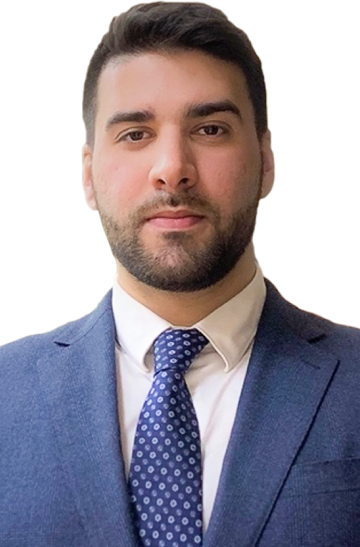
Any questions, please, do not hesitate
to contact the organizers
to contact the organizers
Dr./Ass. Prof. Maria Frolova
Deputy for International Cooperation
NArFU. Higher School of Engineering
NArFU. Higher School of Engineering



Any questions, please,
do not hesitate to contact
the organizers
do not hesitate to contact
the organizers
Dr./Ass. Prof.
Maria Frolova
Maria Frolova
International School
ARCTIC ENGINEERING
20-25 September 2021 Online

Apply for Online School



Clicking on the button
I agree tothe privacy policy
I agree tothe privacy policy
Or by e-mail
Via messenger




For joining WeChat
please scan QR-code with your device

Arctic Engineering Chat





















